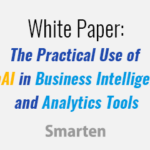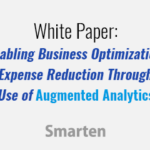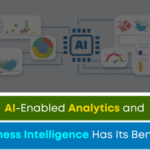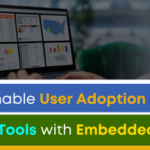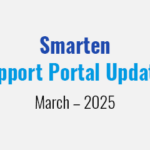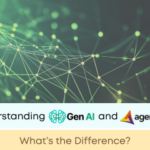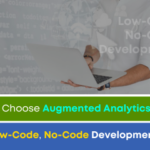3 Primary Components for Citizen Data Scientist Success!
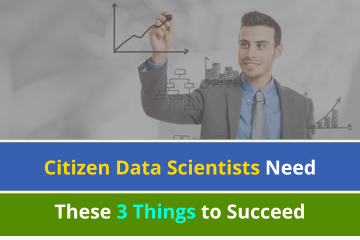
The Citizen Data Scientist phenomenon is in full swing and, while the approach has its detractors, the proof is in success, and many organizations are actively succeeding using the Citizen Data Scientist approach.
Gartner has predicted that, in the future ‘…40% of data science tasks will be automated, resulting in increased productivity and broader usage by citizen data scientists.’
‘The enterprise does not expect to hire a legion of data scientists to perform analytics for every day-to-day need within the organization.’
There are many benefits of transitioning business users to a Citizen Data Scientist role, including:
- Improved data literacy
- Increased Data Democratization
- Improved Collaboration
- Increased Productivity
- Improved Alignment with Goals and Objectives
- Optimization of Data Scientist and IT Resources
- …and more!
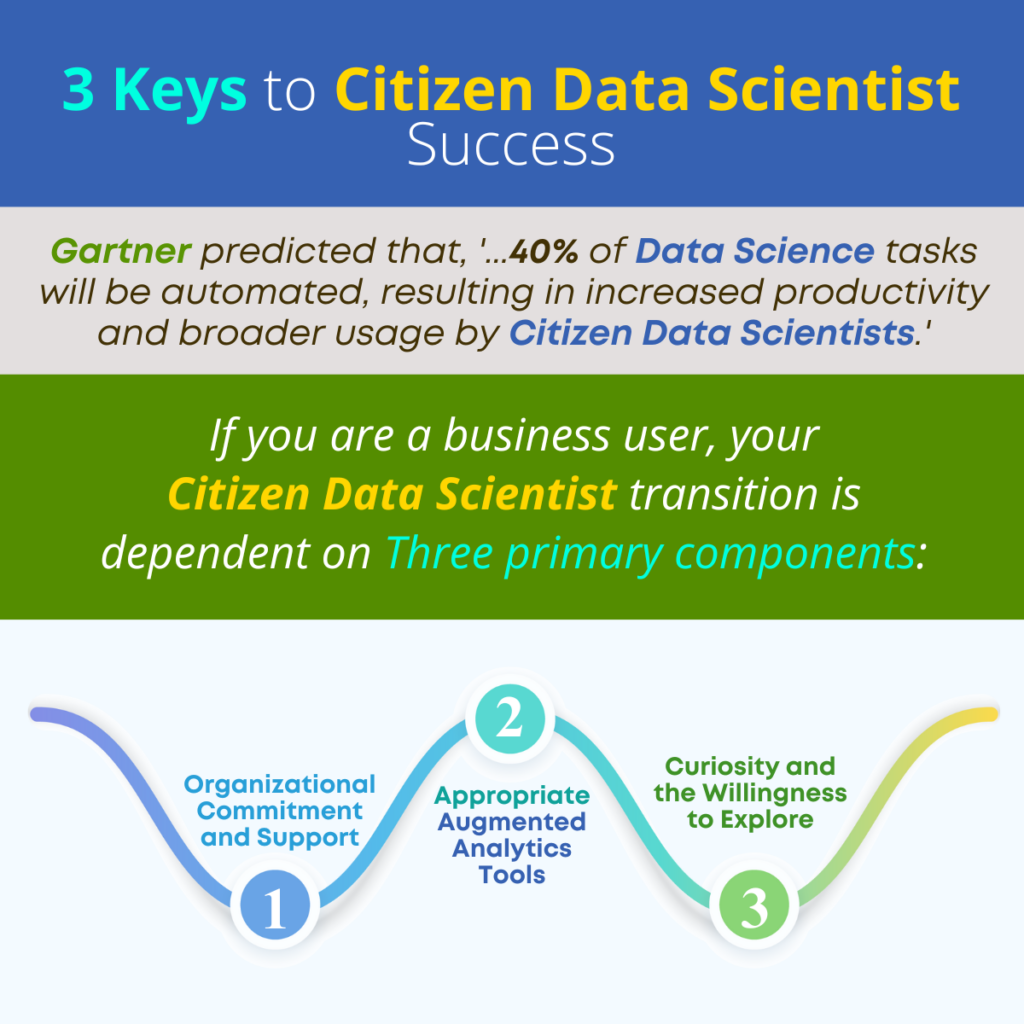
There are many factors and components inherent in the success of a Citizen Data Scientist. If you are a Citizen Data Scientist candidate, there are three primary components of success:
- Organizational Commitment and Support – A business cannot just say they are committed to the Citizen Data Scientist approach. It must plan carefully and include a complete review of the current workflow, business processes and technology in order to make the changes required to support the new program. Citizen Data Scientists must be supported with revisions to performance evaluations and promotions. These revisions should encourage and enable the use of augmented analytics and collaboration so that business users are rewarded for acquiring and using new skills.
- Appropriate Augmented Analytics Tools – As with any other type of position or job, a Citizen Data Scientist needs the right tools to succeed. Without the right analytics tools, business users cannot make a successful transition to a Citizen Data Scientist role. The enterprise does not expect to hire a legion of data scientists to perform analytics for every day-to-day need within the organization but, if business users are expected to perform analytical activities, they will need easy-to-use tools that are sophisticated enough to achieve results, without requiring complex analytical skills or lengthy training. Augmented Analytics tools that are designed for business users should provide a foundation of machine learning and natural language processing (NLP) so search analytics is as easy as asking a question in a Google-type interface, with features like Smart Data Visualization, Assisted Predictive Modeling and Self-Serve Data Preparation.
- Curiosity and the Willingness to Explore – A prospective Citizen Data Scientist should have at least an average technology capability, with above average curiosity and a willingness to learn and collaborate. The ideal candidate should be recognized as someone who interacts well with others, and is willing to mentor others and help them become comfortable with new tools and processes.
‘If you are a Citizen Data Scientist candidate, there are three primary components of success.’
These are just a few of the factors you must consider when implementing a Citizen Data Scientist approach. Business users who are interested in becoming a Citizen Data Scientist must be willing to embrace new technology and tools and working at the leading edge of a new approach to collaboration and decision-making. initiative. Consider engaging an expert for your Citizen Data Scientist. IT consultants with experience and skill in this area can provide crucial support to help you succeed with your Citizen Data Scientist initiative and can provide simple Training Programs to bring your team on board and help them see the value to themselves and to the organization.



